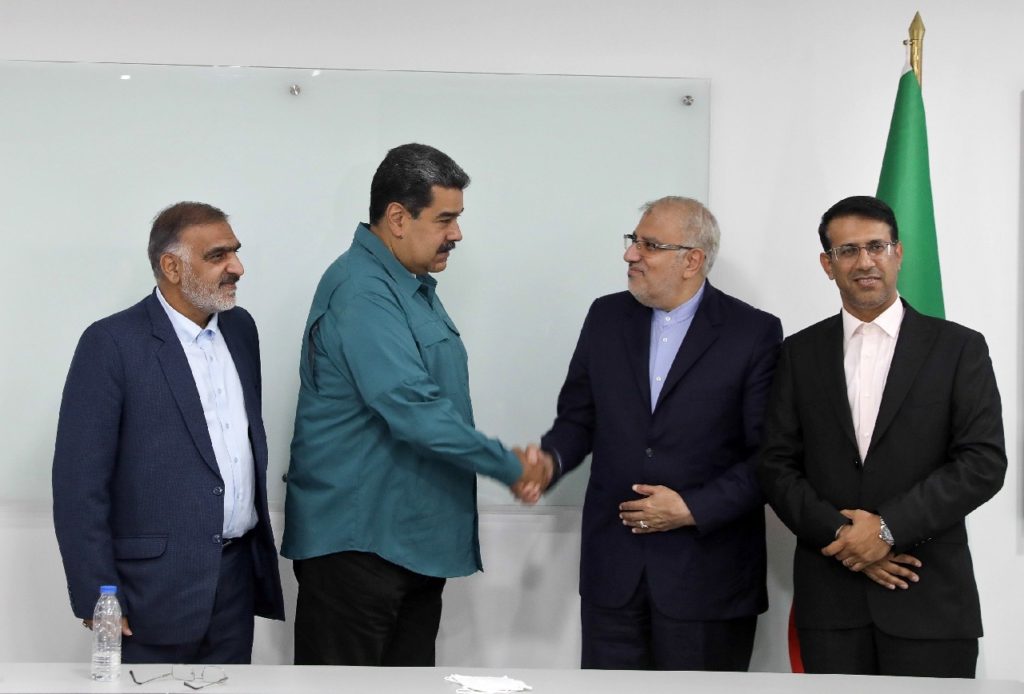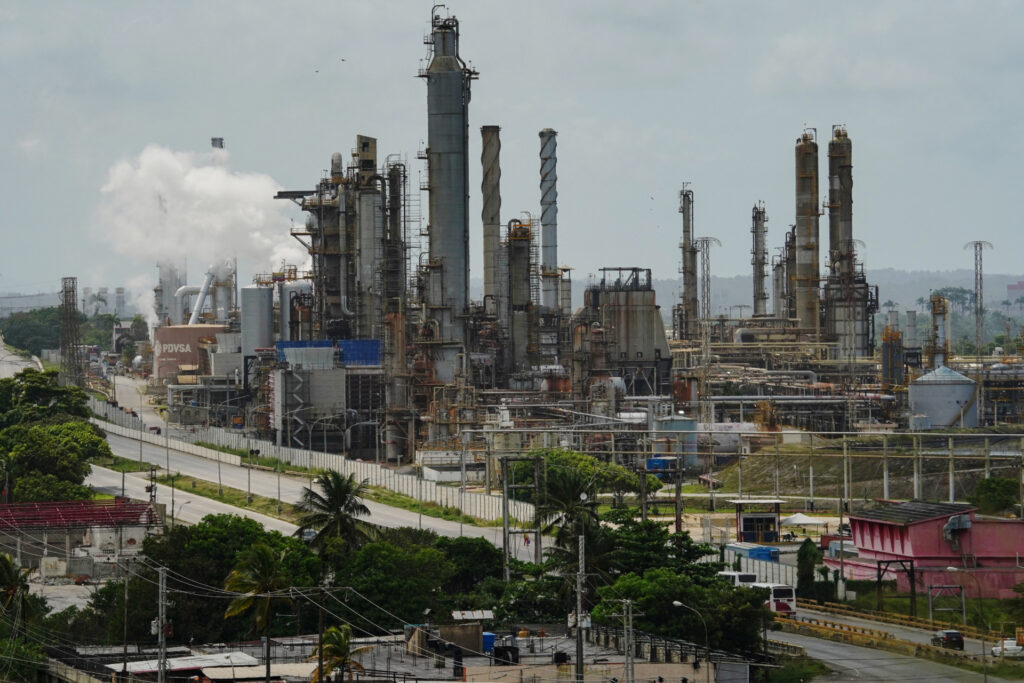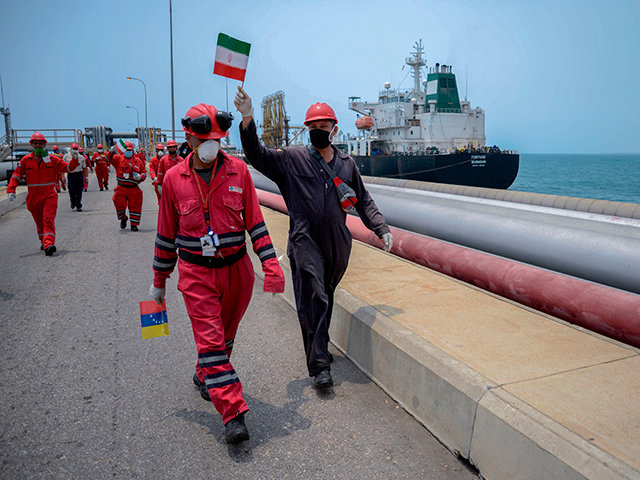Iran’s Oil Minister Javad Owji announced on Sunday that Iran has finished repairing Venezuela’s El Palito refinery, allowing upwards of 100,000 barrels per day of Iranian oil to be refined overseas in the rogue South American socialist nation, according to a report published by the Islamic Republic News Agency on Monday.
“This was an old dream, as of 43 years ago, that thanks to [Iran’s National Oil Products Distribution Company] colleagues and its managing director’s efforts and pursuance, and intensive planning, was materialized for the first time, and will continue in other parts of the world, as well,” Owji said.
Iran has been a key figure in helping the Maduro regime restore Venezuela’s oil industry after the socialist regime nearly destroyed it in its entirety throughout the past decade. Since May, the Maduro regime has been importing Iranian crude oil to feed its partially functioning refineries.
Both countries signed a new 20-year cooperation agreement in June.

Handout picture released by the Venezuelan Presidency showing President Nicolas Maduro (2-L) shaking hands with Iran’s Oil Minister Javad Owji (2-R) during his visit to Miraflores Presidential Palace for a private meeting in Caracas on May 2, 2022
In exchange for its continued aid, the Maduro regime has granted several concessions to Iran’s Islamic regime, which include handing over a supermarket chain in 2020 that the socialist regime seized in previous years and offering Iran a generous amount of Venezuelan farmland.
El Palito refinery, located in Carabobo, Venezuela, is one of Venezuela’s state-owned refineries that, at its prime, was able to refine up to 146,000 barrels of oil per day. After years of socialist mismanagement, the Maduro regime, much like the rest of the country, ran Venezuela’s oil refineries to the ground through negligence, causing Venezuela to have lost almost all of its entire oil refining capacity by 2019. El Palito has been virtually paralyzed since 2017 after a fire caused significant damage to its infrastructure, crippling its refining capacity down to 14.28 percent of its maximum capacity. Since then, the Maduro regime has tried to restart operations in the refinery on several occasions with no success.

The Petroleos de Venezuela SA (PDVSA) El Palito refinery in El Palito, Venezuela, on Wednesday, March 9, 2022. (Manaure Quintero/Bloomberg via Getty Images)
In 2020, the Maduro regime once again attempted to unsuccessfully reactivate El Palito, causing an oil spill that gravely affected the ecosystem of Venezuela’s Morrocoy National Park that may take up to fifty years to recover.
In May, Iran’s Islamic regime and the Maduro regime signed a 110-million-Euro (about $107 million) deal to have Iran repair El Palito. Iran has also been supplying oil shipments to the Maduro regime since 2020 to compensate for Venezuela’s — the country with the largest proven oil reserves in the world — fuel shortages.
The 100,000 barrels of Iranian oil per day that the Islamic regime’s oil minister claims El Palito will now refine come to join the approximately 659,000 barrels of oil per day that the Maduro regime produced in September according to OPEC reports — down from the average of 714,000 barrels per day it produced during the second quarter of 2022 and significantly short of the 2 million barrels per oil that socialist dictator promised to OPEC for 2022.
Venezuela was producing 3.1 million barrels per day prior to the arrival of Hugo Chávez’s Bolivarian Revolution in 1999. The socialist regime was able to relatively maintain the same production output until it inevitably began to plummet due to socialist mismanagement.
While the Maduro regime often blames U.S. sanctions for having caused a drop in the country’s oil production, Venezuela’s oil output had already been steadily on the decline long before any sanctions were imposed on the state-owned PDVSA oil company in 2019, having gone from an average of 2.3 – 2.7 million barrels per day in 2013 down to an average of 1.3 – 1.5 million barrels per day in 2018 according to OPEC historical data.
According to a Wall Street Journal report published on October 5, the Biden Administration is allegedly preparing to ease oil sanctions on the Maduro regime, potentially allowing Chevron to once again pump Venezuelan oil, potentially boosting Venezuela’s oil production to upwards of 1.5 million barrels per day within a two-year period if other companies are allowed to operate in Venezuela alongside Chevron.
The Wall Street Journal report stated that the prospective oil sanctions being prepared by the Biden Administration would only be granted if the Maduro regime and Venezuela’s “opposition” once again engage in negotiations, which they have done so numerous times in the past with no results. The Biden administration insists both sides return to the negotiating table to discuss terms and conditions to hold “free and fair” presidential elections in 2024.
Christian K. Caruzo is a Venezuelan writer and documents life under socialism. You can follow him on Twitter here.

COMMENTS
Please let us know if you're having issues with commenting.